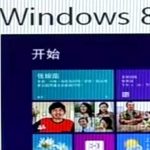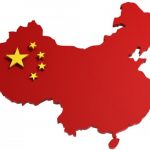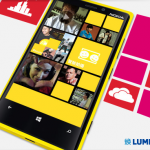Xbox One now available for pre-order in China

On Friday, China Telecom, the country's third biggest telecommunications company, said it would start selling the Xbox One in China from September, although no pricing details were revealed.
Today JD.com Inc, China's second largest e-commerce company (by market share), confirmed it has started to accept pre-orders for the games console.
China leaks $2bn of secret Microsoft Android patents

Microsoft has maintained for the last three years or so that every Android phone ever made infringes on patents locked away somewhere in Redmond. High-profile legal cases, like Microsoft's suit against the Android-powered Barnes & Noble Nook e-reader, and its successful lawsuits against five major Android smartphone manufacturers, have fueled a huge amount of public speculation as to what exactly those patents are.
The problem is, Microsoft hasn't been saying, and with only a few exceptions has taken every measure possible to keep them hidden from the public.
China brands Windows 8 a threat to its national security

It’s fair to say China isn’t a fan of Windows 8. A few weeks ago, the tiled OS was banned from Chinese government computers, as part of a notice on the use of energy-saving products (if this sounds a bit vague, that’s because the reason given is).
Then, if that wasn’t bad enough news for Microsoft, a state-backed news report broadcast on China's CCTV has really put the boot in, branding the operating system a threat to China's cybersecurity, and suggesting it is being used to spy on Chinese citizens.
How five Chinese hackers stole secrets from some of America's largest companies

208 Datong Road is a nondescript concrete high rise on one of Shanghai's busiest roads. Amid the lingering smog rising like mist off the honking lines of traffic, and the trains screeching to a halt in the nearby main railway station, this building doesn't look like much. But this is exactly where five members of an elite People's Liberation Army group codenamed Unit 61398 were assigned to hack into some of the largest companies in the United States of America.
According to an indictment unveiled on Monday, "the co-conspirators used email messages known as 'spearfishing' messages to trick unwitting recipients into giving the co-conspirators access to their computers”.
Apple announces long-awaited deal to bring iPhones to China Mobile

It’s been a long time coming, but finally Apple announces it has entered into a multi-year agreement to bring the iPhone to China Mobile, the world's largest mobile network.
As part of the agreement, the iPhone 5s and iPhone 5c will be available from China Mobile's extensive network of retail stores, as well as Apple’s own retail locations across mainland China, beginning on Friday, January 17, 2014. Pre-registration to get a handset will begin 25 December.
Tablets devastate laptop market

The white box battle is on, and laptops are losers. The big trend in tablets isn't iPad, contrary to public convention, but non-big-brand slates, which account for one-third of shipments, according to NPD DisplaySearch. Their success is good for Android, bad for Apple and worse for notebooks.
The early DOS/Windows PC market succeeded largely because of clones (like those from Compaq) and white label/box manufacturers and build-your-own enthusiasts. BYO isn't a tablet trend, but white box is, and its greatest impact is growth markets PC manufacturers count on -- or at least did.
What is Bing's China problem?

A few weeks ago, while doing a bit of research for a story, I had occasion to visit the Bing search page. More importantly to this article, it was the Chinese version of Bing. Over the following days I forgot about this brief foray into Asia, but my web browser remembered.
When I return to Bing several days later I am defaulted to the China site -- it still says I am on www.bing.com, but all information is displayed in Chinese characters, which Chrome helpfully translates on the fly. I close the tab, re-open and try again with the same results. I close Chrome and try again -- still nothing.
'Slightly closed Android ecosystem could be reality by the end of 2015'

That's the prediction Aapo Markkanen, ABI senior analyst, makes today. It's the right call, as Larry Page starts his third year returning as Google CEO. Page resumed duties on April 4, 2011, and the company's direction took a hard turn. Business is more aggressive, altruistic goals less and so-called openness a waning thing. As I asserted a year ago, "Google has lost control of Android". That Page and Company would try to wrestle back control is no surprise.
Facebook Home is good reason. The user interface debuting April 12 takes over the more app-centric Android homescreen, putting the social network first before anything else, including Google+. Facebook's OEM program could put Home on many more devices. HTC already is on board with the First smartphone. Then there is Samsung, which during fourth quarter accounted for 42.5 percent of all Android handset sales, according to Gartner. TouchWiz, which gets a big update with forthcoming Galaxy S4, is the user experience -- not that determined by stock Android. These are but two examples of many.
Microsoft opens new online store in virtual Chinese mall

Microsoft is making another attempt to get into the Chinese market by way of something other than piracy. China is the world's largest market for computers, but many of the customers run pirated versions of software, including Windows and other Microsoft products. Now the company is attempting to provide users with a legitimate way to get their hands on its wares, and not just software.
In October 2012 Microsoft opened a version of its online store in the Chinese language, and now Tmall, one of largest online shopping malls in the People's Republic of China, has just added an official Microsoft retail point.
Nothing can save Windows 8 now

Tell me if you can't make the connection here. China is the world's largest market for PCs and during 2012 passed the United States to claim the top spot in smartphones, too. About two thirds of all handsets going into China are smartphones, and there is a long-documented trend in emerging markets where people skip the PC and go right to mobiles as their first connected devices. Handset sales are way up and now IDC says PC shipments are way down going into the People's Republic and will contribute to larger-than-expected decline in global personal computer shipments. You follow where this is going?
IDC says February PC shipments fell below forecasts. The analyst firm had expected a 7.7 percent year-over-year decline for first quarter but now predicts double-digit drop instead. China, which accounted for 21 percent of global PC shipments last year, is a major, but not the only, reason. The analyst firm identifies Chinese New Year, budgets cuts and anti-corruption campaigns as factors, while ignoring the most obvious: Shifting buying patterns.
Smartphone shipments surge ahead of lesser mobiles -- Brazil, China and India lead the way

Last month after analyzing Gartner's Q4 handset sales data, I quipped: "At this pace, smartphone sales should surpass feature phones within a couple quarters". Today, IDC released a real forecast, claiming that smartphone shipments would do just that. While not exactly sales, the change would mark a significant shift in the mobile phone market, with China charging ahead of all other countries.
The analyst firm expects smartphone shipments to nudge past 50 percent for the year, a forecast I consider to be overly conservative. Based on sales, the category already has 44 percent share, according to Gartner. The smartphone market is so fast-changing, few analysts get anything right. As I explained in December, IDC repeatedly underforecast smartphone shipments throughout 2012. The general view is likely right, but with feature phones falling at brisker pace.
iPhone cracks against the Great Wall of China

The Chinese smartphone market is dominated by five top manufacturers, none of them Apple, Canalys reveals. As I've warned a couple times recently, despite CEO Tim Cook's prognostications about China's importance or his company boasting 2 million first-weekend iPhone 5 sales, competitors rapidly close out the market for costly fruit-logos.
China is the biggest market for mobiles, largely dominated by smartphones -- 73 percent of the total in fourth quarter, up from 40 percent a year earlier. Shipments soared 113 percent to 64.7 million units, or 30 percent of all smartphones globally. Samsung captured the top spot, followed by Lenovo, Yulong, Huawei and ZTE.
Uh-oh, $50 smartphones mean big trouble for Apple

That sound you hear: Emerging markets sucking the margins out of iPhone. Gartner predicts that Chinese brand and white-box handset manufacturers will dramatically change the smartphone market's course this year. Android is likely to be the big beneficiary, while iPhone has the most to lose. Economies of scale will bite Apple, which benefits from one of the tightest supply chains anywhere. Chipset integration, for example, will allow handset makers to ship cheaper devices that are good enough, even if less than market leaders.
"The combination of competitive pricing pressure, open-channel market growth and feature elimination/integration will very soon result in the $50 smartphone", Mark Hung, Gartner research director, says. "Semiconductor vendors that serve the mobile handset market must have a product strategy to address the low-cost smartphone platform, with $50 as a target in 2013". That's right, 50 bucks, not the $650 Apple charges carriers.
iPhone 5 first-weekend China sales top 2 million

Apple started selling its newest smartphone in the People's Republic of China on December 14. Late tonight, the company claims 2 million sales for Friday and the weekend. The announcement comes as rumors mount about slowing sales.
"Customer response to iPhone 5 in China has been incredible, setting a new record with the best first weekend sales ever in China", Tim Cook, Apple CEO, says. "China is a very important market for us", which is quite the understatement. During fiscal fourth quarter China revenue reached $5.7 billion, up 26 percent year over year. iPhone rose 38 percent, Macs 44 percent and iPad 45 percent. For the fiscal year, China generated $23.38 billion revenue, or 15 percent for all Apple. China accounted for more than three-quarters of Asia-Pacific revenue.
Nokia Lumia 920 and 820 available for pre-order in China

A week after Nokia announced the Lumia 920T, the first TD-SCDMA variant of the Lumia 920 for China Mobile, the Finnish manufacturer has introduced its entire Windows Phone 8 line-up to the Chinese market.
Nokia's Windows Phone 8 flagship, the Lumia 920, is available for pre-order in China for ¥4,599 (roughly $735). The handset sells for the same price as the Lumia 920T, but is designed to operate on other networks. The company's mid-range Windows Phone 8 device, the Lumia 820, can be pre-ordered with a less intimidating price-tag. The smartphone is available for ¥3,499 (roughly $560).
Recent Headlines
BetaNews, your source for breaking tech news, reviews, and in-depth reporting since 1998.
© 1998-2025 BetaNews, Inc. All Rights Reserved. About Us - Privacy Policy - Cookie Policy - Sitemap.